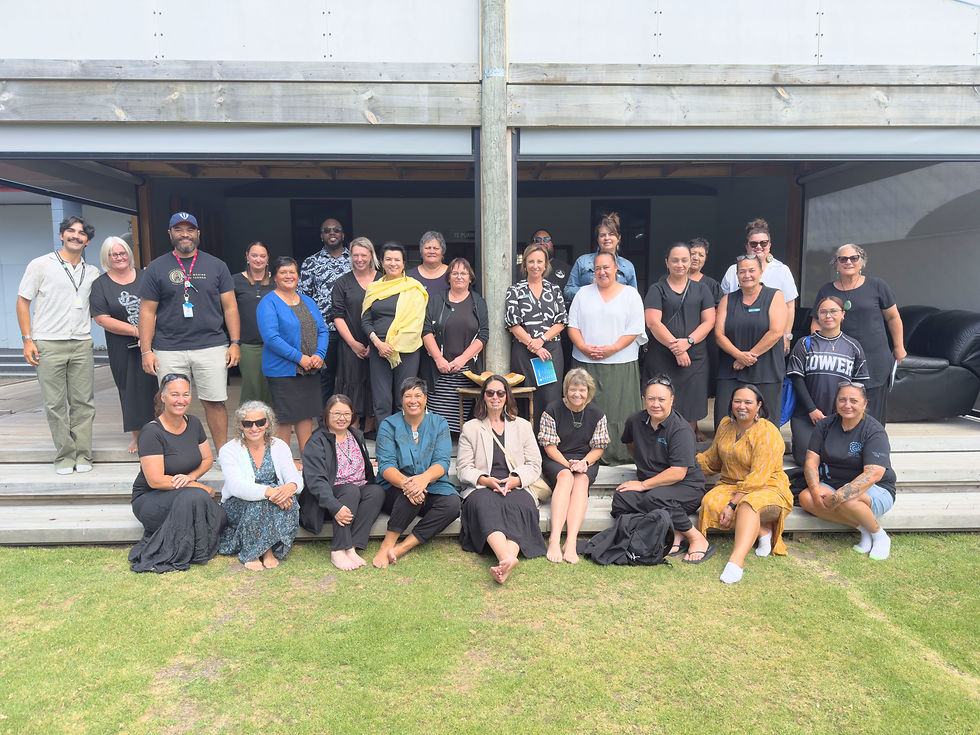Cognitive Stimulation Therapy Continues
- Jun 23, 2025
- 2 min read

Whanganui’s first-ever Cognitive Stimulation Therapy (CST) programme, designed to support people diagnosed with mild to moderate dementia/mate wareware, has taken root and flourished thanks to the dedication of two passionate local professionals – Tori Bensemann, Occupational Therapist and Rebecca Casey, Nurse Practitioner – Ageing Well Lead at Whanganui Regional Health Network (WRHN).
“We also acknowledge our partners from Elders Community Mental Health, who have co-facilitated CST and played an important role in CST delivery,” says Ms Casey.
The CST programme was launched under WRHN, to provide evidence-based, person-centred support to those living with dementia/mate wareware in the community. Since its inception, the initiative has seen enthusiastic uptake and tangible success – enhancing quality of life, stimulating cognitive function, and fostering connection among participants.
As Tori prepares to step away from her role to welcome a new baby, and with the initial WRHN contract concluding, the future of CST in Whanganui was at a crossroads. However, the value of the programme was clear. “CST uses various therapies to improve quality of life and confidence. Feedback from participants and whānau noted participants were far more chatty at home, whilst others reported they are more confident to get out and about. It’s enjoyable and there is a lot of laughter and fun!” says Ms Bensemann.
Recognising the critical importance of keeping CST accessible in Whanganui, WRHN is proud to announce a new partnership with Alzheimers Whanganui. Under a 12-month contract starting 1 July, Alzheimers Whanganui will become the new facilitators of CST, ensuring this vital support continues uninterrupted.
Partnering with Alzheimers Whanganui is a natural next step. Their longstanding commitment to supporting individuals and whānau affected by dementia makes them the ideal organisation to carry CST forward. We want whānau to access Alzheimers Whanganui and appreciate the wrap-around care, education and support they offer people living with dementia/mate wareware and their whānau.
The programme’s next phase will continue to focus on inclusivity, with a strong emphasis on working alongside Māori, Pasifika and rural communities. “Through the whānau voices collected at WRHN, it’s clear that people living with dementia/mate wareware – and their whānau – want timely access to the knowledge, tools and support available to manage their journey,” says Ms Casey.
For more information about CST sessions and how to participate, please contact Alzheimers Whanganui on (06) 345 8833.




Comments